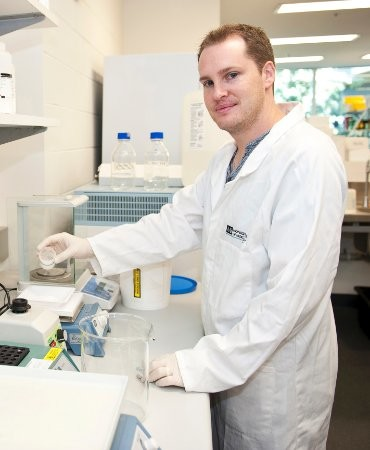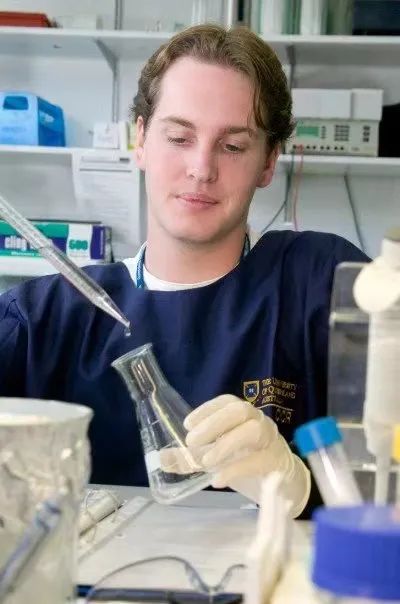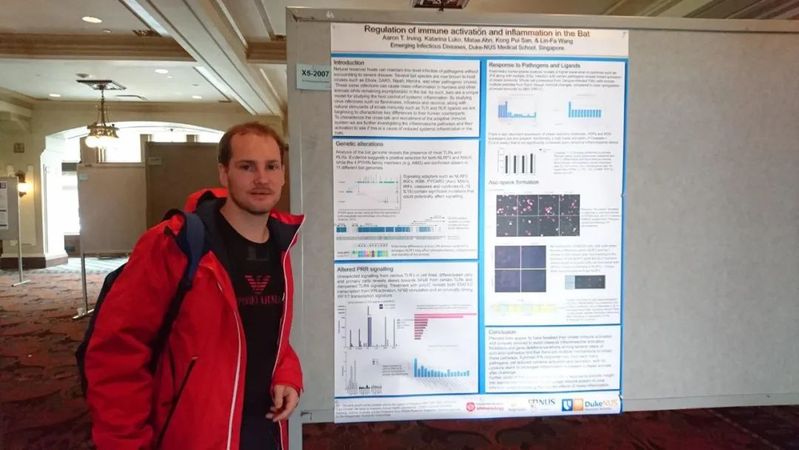Aaron Irving

Aaron Irving, Assistant Professor at the Zhejiang University-University of Edinburgh Institute (ZJE). His journey into the world of life sciences began with a movie and a deep connection to China.
Dr. Aaron Irving, an Assistant Professor at ZJE, brings a wealth of academic and research experience from his training at institutions like the University of Queensland (Australia), Diamantina Institute (UQ Australia), Monash Biomedicine Discovery Institute (Melbourne), and the Duke-NUS Medical School (Singapore).
Dr. Irving's focus lies in newly emerging zoonotic viral infections and the host-pathogen interactions they trigger. He uses bats as a model organism, exploring key factors in bat immune responses that could be harnessed to enhance human immunity against pathogens. His lab also works on new diagnostic techniques to identify wildlife infections with zoonotic viruses like SARS-CoV-2 and factors contributing to the potential for zoonotic diseases.

But what led Aaron to this fascinating field of virology? It all started with a childhood fascination with viruses, but it was a movie that changed the course of his life. The film "Outbreak," which tells the story of the Ebola virus jumping from monkeys to humans and spreading among the population, convinced him to become a research scientist. With curiosity about viruses and a concern for human health, he embarked on the path of scientific research.
During his undergraduate years, Aaron pursued a Bachelor of Science degree, allowing him to freely explore his interests and build a solid foundation in biology. He worked diligently, fueled by passion and guided by his interests, eventually earning dual degrees in molecular biology and cell biology.
After his undergraduate studies, he continued for an additional year of research (known as an Honours degree in Australia) and achieved the highest honors (Class I). During this time, he delved into the study of the herpes simplex virus (HSV1), which causes cold sores, and how it evades the human immune system. This research laid the groundwork for his future career in host-pathogen interactions.

When it comes to bats, Aaron's eyes light up with excitement. "Bats are truly fascinating creatures," he says. What makes Aaron so enamored with these flying mammals?
Initially, Aaron was not well-acquainted with the mysteries of bats. However, he stumbled upon a new world that captured his interest. Bats have undergone many evolutionary adaptations, making them exceptionally healthy, robust, and resilient animals with strong immune systems, immunity to aging, cancer resistance, inflammation prevention, and autoimmune disease avoidance. Aaron's research on bats aims to uncover the secrets of their exceptional health and apply that knowledge to benefit human health.
Today, Aaron is involved in various projects, including those related to coronaviruses. His primary focus is on understanding the different genes that bats activate in their immune responses and comparing them to humans.
One of his most intriguing projects examines the differences between bat and human aging. According to Aaron, wild-caught bats show no signs of aging, with 20-year-old bats appearing as youthful as 1-year-olds. He hopes to compare this phenomenon with research on human aging and humorously suggests that the findings could potentially be applied to skincare products to prevent human skin aging.

Before joining ZJE, Aaron had already established a connection with China. He had previously visited Yunnan, known as the "Kingdom of Flora and Fauna," and collaborated with a local organization. He describes Yunnan as an incredible place with diverse biological species, making bat capture relatively easy due to the vast bat populations in a small area.
When asked why he chose ZJE, Aaron believes that science in China is rapidly growing, offering abundant opportunities and possibilities. ZJE warmly welcomes fresh talent and provides excellent research facilities and an environment conducive to teaching. Additionally, the international platform at ZJE allows him to adapt and integrate into a foreign culture. Despite being a newcomer, he appreciates the students' critical thinking abilities and their knack for posing thought-provoking questions, which continually surprise him. He encourages students to express their opinions boldly and actively participate in the classroom.







